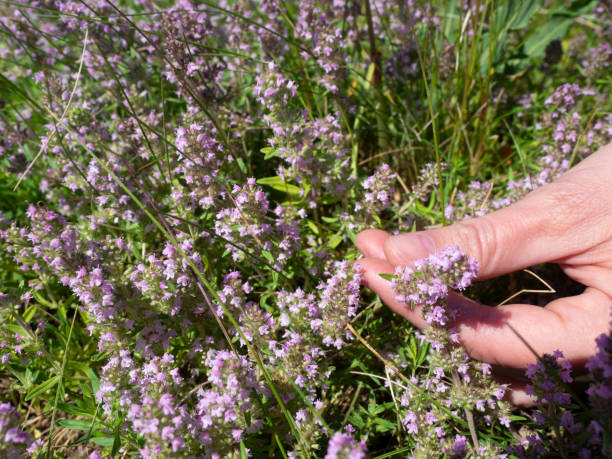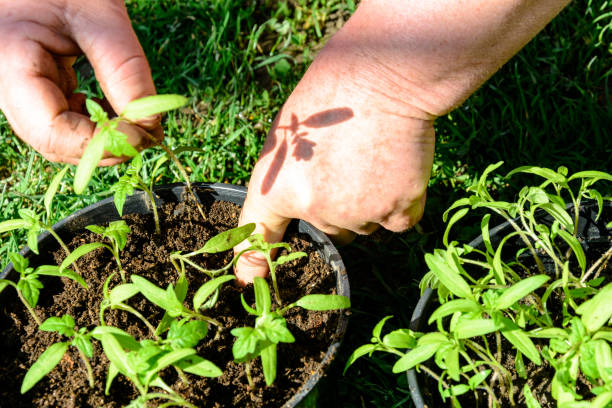When schoolchildren and adults have the skills, knowledge, and confidence to work together toward sustainability and conservation, they can achieve environmental literacy. Dr. Todd Klawinski is an environmental education specialist who envisions a future where all public schools will make ecological literacy a part of their mission.
Dr. Todd Klawinski is a teacher at the Caesar Rodney School district, a U.S. Department of Education Green Ribbon school district for sustainability in Kent County, Delaware. He has been an educator in public schools for over 20 years and reached out to me to tell me about the great work that his school district is doing. In 2006, he began as a middle-school science teacher at Caesar Rodney School District. He then joined the instruction team as an environmental education specialist in 2017. Todd is passionate about outdoor education and supports sustainable schools that promote wellness and health. He loves teaching children about nature and helping them to be kind and helpful in the community.
Todd believes he was born into this world with a calling. Todd had the opportunity to nurture that calling in his childhood, taking appropriate risks like catching frogs from ponds. At the age of 7, he was practicing Mark-Release-Recapture with frogs.
Throughout his adolescence, he maintained an interest in the natural environment. He received a bachelor’s in biology at Stockton University, New Jersey. There he was a member of Stockton Action Volunteers for the Environment (S.A.V.E.). He then received his master’s in education at Marygrove College in Detroit. And he just finished his doctorate in environmental literacy teaching at Wilmington University.
Todd says that his first passion was wildlife biology. He learned that studying animals is difficult because they move differently from plants. When he finished his undergraduate studies, he focused on botany. He was interested in learning more about plants and animals that are vital to their survival.
He was a Rutgers University Cooperative Extension technician in New Jersey. He researched blueberries and cranberries using polymerase chain reaction (also known as PCR), a laboratory technique that amplifies D.N.A. sequences. He was also involved in a U.S. Department of Agriculture project that looked at pesticides used to control blueberry maggot.
He realized that his path would take him from technician to researcher to a Ph.D. and then to finding more information. He wanted to do research that directly affected people. He switched to education and worked mostly in middle school, high school, and college.
Before I continue my conversation with Todd on environmental literacy, I want you to know that I just published The Vegetable Growing Book: Your Complete Guide to Growing an Eating Organic Garden from Seed to Harvest.” It is full of tips and information that will help improve your gardening skills and overcome challenges.
My new Online Gardening Academy premium course, Organic Plant Gardening, is available for 2023. Join the waitlist
Green Ribbon School District
The U.S. Department of Education, Green Ribbon Schools initiative, is similar to Blue Ribbon, but it focuses on sustainability in schools
The Caesar Rodney School District was awarded the Green Ribbon for its commitment to three pillars. These include reducing local negative environmental impacts and increasing positive environmental impacts and increasing health and wellbeing of all students and staff, as well as providing sustainable education and effective environmental education.
Todd says it is important to consider all aspects of health and wellness for the animals that live on campus, such as local biodiversity.
District schools can improve their health and wellbeing by setting up community gardens. Students can plant vegetables and work in the soil. Todd prefers to call gardening “soil” over “dirt.”
Children can also experience the benefits of compost tumblers on campus.
Allen Frear Elementary School runs a “litter-free” program in partnership with Keep Delaware Beautiful. They emphasize the importance of litter cleanup as a civic duty.
Todd states that Frear Elementary fifth-graders, one of our top schools, is cleaning up the campus. He also teaches civics lessons to every fifth-grade class.
Environmental Literacy
The goal of environmental education is to promote ecological literacy or environmental literacy. Not only is environmental education offered in schools, but also in churches, museums, and homes.
Todd says that environmental literacy is similar to reading literacy. It would be best to practice it from kindergarten through 12th grades and even into adulthood to be truly environmentally literate.
Environmental literacy is the knowledge, facts, and skills required to influence behavior and empower individuals. Todd says that recycling would be impossible if people didn’t understand conservation of matter. For example, there is only so much aluminum in the world. However, once they recognize a problem, they can have the courage to solve it and the confidence to do so.
Many of us know that there is a problem, and we want to fix it. But we are only one person. That feeling of helplessness can be dispelled by environmental literacy.
Todd says that environmental education teaches us there are two worlds. The skin-deep human world and the outer skin — what is called “nature,” or “the built environment”.
Todd says that environmental literacy means having all the knowledge and skills, whether they are acquired in school or through experience, and then being able to use them. He says that the ultimate goal of environmental literacy is behavior change.
Environmental literacy is more than just another academic discipline like science or social studies. It is a broad concept that spans a variety of disciplines, including environmental science, ethics, and politics.
Todd states that environmental literacy is a result of all disciplines. “I cannot think of any discipline that doesn’t have environmental literacy.”
Caesar Rodney School District, for example, is the first to offer a Environmental Science or Sustainability course.
“If you do only environmental science, you are missing the civic action part which was what I was saying about behavior and the will to change, getting involved in the community.”
Todd says that the Delaware affiliate of North American Association for Environmental Education is having discussions about how to approach environmental literacy. They aren’t trying to set standards. He says that standardized testing is not a good idea. They want to be able to combine formal coursework in schools with environmental education programming with outside partners. The goal is to develop competencies and not to meet standards.
Todd’s District works with community partners like F.F.A. (Future Farmers of America), Master Gardener, and U.S. Fish and Wildlife
Todd says, “It’s infusing environment literacy and all we teach and all we do so that we don’t get at the major problems we face today like climate change and decreased biodiversity.”
They will also show that they place a manageable workload on teachers or administrators. Each school will be able to adjust its environment literary focus to engage students, staff, and parents. This will allow them to increase their locus de control — their belief that they can control the outcome of life’s events.
Todd suggests not to be too focused on everything. It’s like trying to absorb all the spray from a fire-hydrant at once. There are many paths to environmental literacy, and you can take action.
Many of the habits we learned as children, such as recycling cans and turning off lights when we leave the room, set us on the path to energy conservation. Although we may feel we aren’t doing enough, the cumulative impact is immense when you add up the efforts of 8 billion people on the planet to conserve energy.



